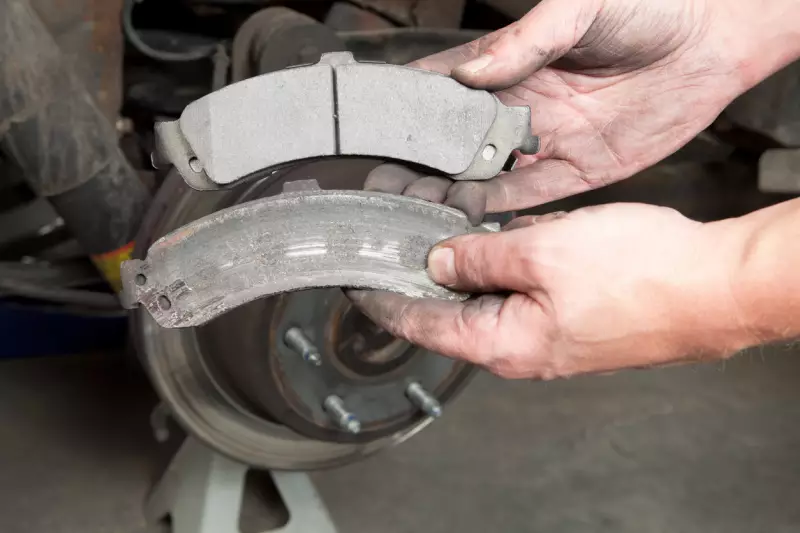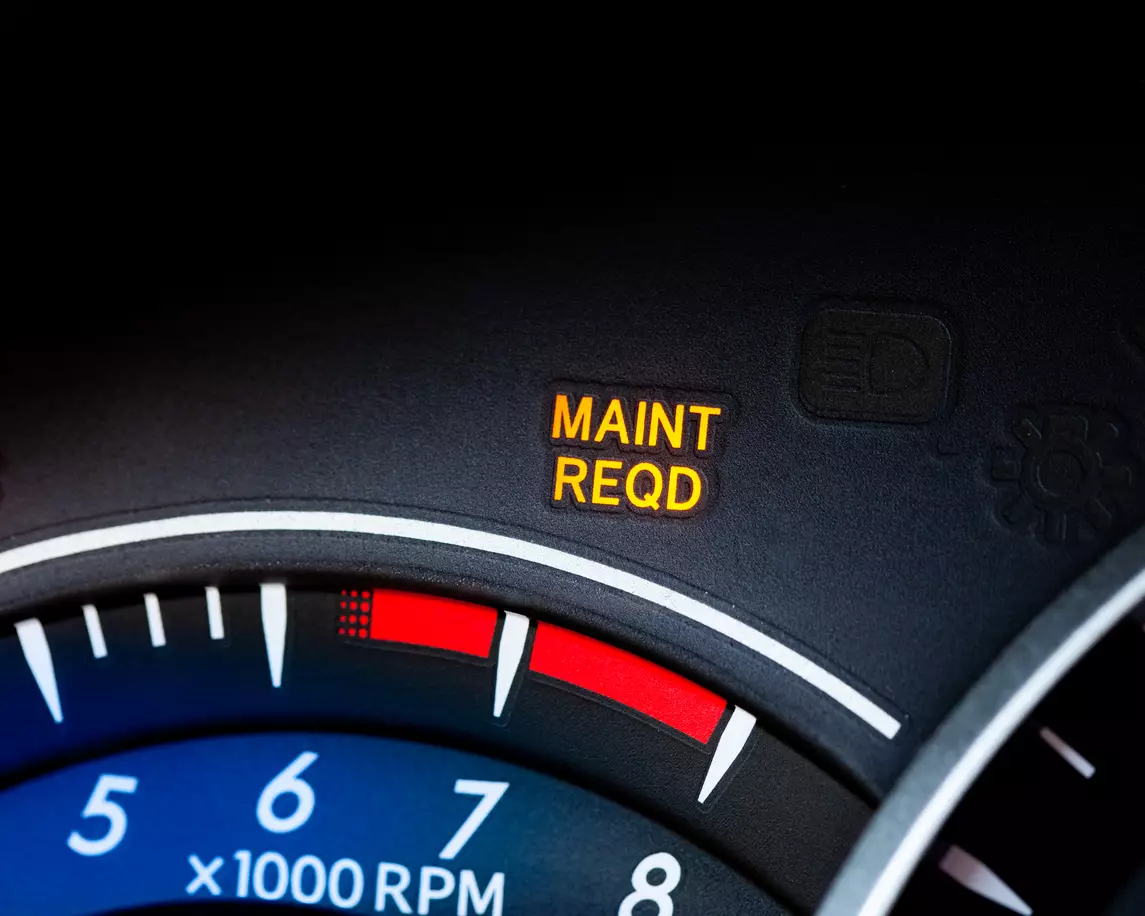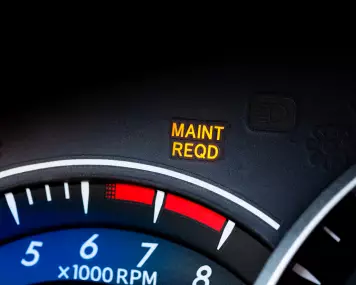Brakes don’t get enough respect – until they’re worn out and not available. They are one of the most important safety features of a motor vehicle. Yet there’s nothing more annoying than having a part of your well-maintained vehicle squeak when operating it.
What Does Squeaky Brakes Mean?
Squeaky brakes are a symptom of a problem that should not be ignored. The squeaking sound is typically caused by the metal-to-metal contact or vibration between the brake pad backing plate and the brake rotor. It’s okay to address the most simple solution first, then if it continues, seek professional help inspecting and replacing worn parts.
Some mechanics say not to introduce any spray or other substances into your brake system in an attempt to reduce its squeaking, but there are products sold in auto parts stores that are specifically designed to clear any corrosion from the brakes to quiet them. (The warning is well heeded, as accidentally lubricating a brake rotor or pads with the wrong spray may cause a loss of braking power.) These are generally quick-drying substances that may clear rust or road dust from the rotor, calming your squeaky brakes. Ask a mechanic before using one on your vehicle, and be forewarned that squeaky brakes can be a symptom that your vehicle needs parts replaced.
What Causes Squeaky Brakes
It’s common for brakes to squeak after a vehicle has been sitting for a week or two. This noise is the pad rubbing against a rotor that has a film of rust on it from inactivity. It should stop after the vehicle has been used for a while. If it doesn’t stop squeaking, see a professional for an evaluation of the brake system. There are also few likely reasons why your brakes are squeaking. These may include:
- Dust or debris trapped in the brake system: Rust on the rotors, especially after a vehicle has been sitting unused for a period of time, can cause a squealing noise when the brakes are applied. Debris such as small rocks or dirt stuck in the brake system can also lead to squeaky brakes.
- Worn parts that should be replaced: Over time and with use, brake components such as pads, rotors, and calipers wear down. Worn parts may not function correctly, leading to decreased braking efficiency and increased noise, including squeaking or grinding sounds. Regular car inspections can identify worn parts that need to be replaced to maintain brake system performance and safety.
- Rust from corrosion: Rust can form on brake rotors due to exposure to moisture, especially if the vehicle is parked in humid conditions or not used for extended periods. Rust can cause surface irregularities on the rotors, leading to squeaking noises when the brakes are applied. Driving the vehicle regularly and using the brakes can help remove light rust, but heavily corroded rotors may need to be replaced.
Why Are Your Brakes Squeaking After Being Replaced?

When you get new brakes, you may expect your car to perform much better, but it can take a while for the new parts to “wear in.” This means more squeaking brakes for a while. If you use a qualified mechanic to replace your squeaking brakes, they won’t be upset when you ask why your brakes are squeaking. But if the noise persists, you should get it diagnosed by a professional. Squeaking brakes should not continue for weeks after replacement and may be due to one of the following:
- improperly installed parts
- rattling noises
- grinding noises that don’t stop
- vibrating or pulsing when the brake is applied
- uneven steering (car pulls to one side)
- a burning smell when applying brakes.
If you still hear squeaking brakes two weeks after replacement, go back to the same shop that installed them and get the system inspected. A part may have failed or been installed incorrectly. If the shop says there’s nothing wrong, but your squeaking brakes are driving you mad, consult a new mechanic. The sound is normal at some times, but if your brake system is well maintained, it should go away. You can’t ignore the noise for long when your brakes are squeaking.
How to Fix Squeaky Brakes
Fixing squeaky brakes involves identifying the underlying cause of the noise and addressing it. Here's a general approach to resolving squeaky brakes:
Inspect Brake Pads and Rotors
- Check the thickness of the brake pads. If they are worn down to less than a quarter of an inch, it's time to replace them.
- Look for signs of wear, glazing, or damage on the brake rotors. Uneven wear or deep grooves necessitate resurfacing or replacing the rotors.
Replace Worn Components
If brake pads or rotors are worn or damaged, replace them. Always replace brake pads in pairs (both front or both rear) to ensure balanced braking.
Clean and Remove Rust
Use a brake cleaner to remove dirt, grease, and rust from the brake calipers, pads, and rotors. For light rust on rotors, gentle driving and regular braking can help clear it away. Heavily rusted rotors may need to be replaced.
Lubricate Moving Parts
Apply a high-temperature brake grease to caliper slide pins, the backs of the brake pads (not the friction surface), and other moving parts to ensure smooth operation and to reduce noise caused by vibration.
Check for Proper Installation
Ensure all brake components are correctly installed and tightly secured. Misalignment or loose parts can contribute to squeaking.
Use Anti-Squeal Products
Consider applying anti-squeal adhesive or shims to the back of brake pads to dampen vibrations and reduce noise.
Regular Maintenance
Regularly clean and inspect your brake system as part of routine car maintenance. This can help prevent problems that lead to squeaky brakes.
If you're not comfortable performing these tasks yourself, it's best to consult a professional mechanic. Some brake noises can indicate serious issues, and addressing them promptly is crucial for your safety.
Squeaking Noise When Driving But Not Brakes Applied
Noises may come from other parts of your car but are confused with squeaky brakes. Things like your car’s suspension system can make noises when it’s worn out, and rattling noises can come from CV joints or rocker arms. These are easily confused with squeaky brakes. Try to isolate the noise and remember when it takes place. If there’s a noise just after you stop, it could be the shocks or springs rather than your brakes squeaking. Other parts may squeak when you are on a bumpy road.
Heavy Braking Causes Problems, Quickly Wears Out Parts
Heavy use of the brakes can generate excessive heat that damages the rotor. This may happen if a vehicle is towing a boat, has a camper attached, or simply has more bodies inside than usual, making it heavy and hard to stop. A warped rotor can be the reason why the brakes are squeaking. Sometimes, a brake system needs to be recalculated and beefed up if you plan to pull trailers or carry other heavy loads regularly. Most vehicle brake systems are designed for nominal loads and are not heavy-duty. The weight plus greater than usual use of the brake system, such as on a mountain road or in heavy highway traffic, can overheat the rotors and cause them to glaze. When this happens, the squeaking brake sound is made when the brake is applied. If you smell burning, hear grinding noises, or your brakes are squeaking after this sort of heavy use, get them checked by a professional.
If your vehicle is equipped with an automatic collision avoidance braking system, this, too, can add strain to your brake pads, rotors, and related parts, potentially wearing them out prematurely. This system uses forward-looking sensors to apply brakes in an emergency to avoid crashes. If it “sees” phantom vehicles or objects in your path that trigger it unnecessarily and cause a lot of abrupt stops, resulting in squeaky brakes from wear, it should be checked by a professional. These unplanned stops can be especially hard on brake components and dangerous as well.




















